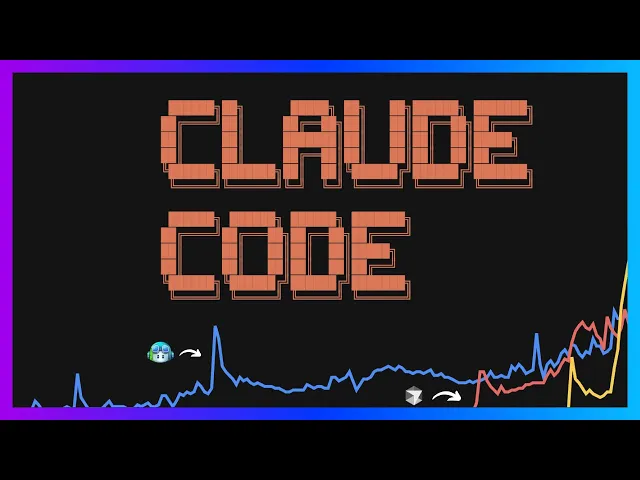Claude Code: The Future of Coding?

Claude Code might transform software development
In a landscape where AI tools are rapidly transforming how we work, Claude's recent demonstration of its coding capabilities stands out as particularly noteworthy. The video showcases Claude's ability to generate code, explain programming concepts, and even build functional applications from scratch—all through natural language conversations. This development signals a potential shift in how both professional developers and non-technical users might approach software creation in the near future.
Key insights from the demonstration
- Claude can generate complete, working applications through conversational prompts, including handling edge cases and explaining its implementation choices
- The AI excels at translating high-level requirements into functional code across multiple programming languages and frameworks
- Claude's ability to refine code through iterative feedback loops mirrors human development processes, but at significantly accelerated speeds
- The system demonstrates contextual understanding of code snippets, offering detailed explanations that could serve educational purposes
Perhaps the most compelling aspect of Claude's coding capabilities is how it democratizes software development. By allowing users to express their needs in natural language rather than programming syntax, it bridges the technical gap that has historically limited who can create digital solutions. This matters tremendously in today's business environment, where technical talent remains scarce and expensive, while the demand for customized software solutions continues to grow exponentially.
The implications extend far beyond simply making coding more accessible. For established developers, Claude functions as an intelligent pair programmer—suggesting optimizations, catching edge cases, and handling boilerplate code that often consumes disproportionate development time. This partnership model could fundamentally change development workflows, allowing human programmers to focus on higher-level architecture and creative problem-solving while delegating implementation details to AI systems.
However, this advancement also raises important questions about software quality and security that weren't fully addressed in the demonstration. In production environments, AI-generated code would require rigorous testing and review processes. Without proper oversight, organizations might inadvertently introduce vulnerabilities or inefficiencies into critical systems. Research from Stanford and other institutions has shown that while AI-generated code often appears functional at first glance, it can contain subtle logical errors or security flaws that only become apparent under specific conditions.
The economic impact of these tools also deserves consideration. McKinsey estimates that coding automation could affect up to 20% of current software development tasks within five years. Rather than wholesale replacement of developers,
Recent Videos
How To Earn MONEY With Images (No Bullsh*t)
Smart earnings from your image collection In today's digital economy, passive income streams have become increasingly accessible to creators with various skill sets. A recent YouTube video cuts through the hype to explore legitimate ways photographers, designers, and even casual smartphone users can monetize their image collections. The strategies outlined don't rely on unrealistic promises or complicated schemes—instead, they focus on established marketplaces with proven revenue potential for image creators. Key Points Stock photography platforms like Shutterstock, Adobe Stock, and Getty Images remain viable income sources when you understand their specific requirements and optimize your submissions accordingly. Specialized marketplaces focusing...
Oct 3, 2025New SHAPE SHIFTING AI Robot Is Freaking People Out
Liquid robots will change everything In the quiet labs of Carnegie Mellon University, scientists have created something that feels plucked from science fiction—a magnetic slime robot that can transform between liquid and solid states, slipping through tight spaces before reassembling on the other side. This technology, showcased in a recent YouTube video, represents a significant leap beyond traditional robotics into a realm where machines mimic not just animal movements, but their fundamental physical properties. While the internet might be buzzing with dystopian concerns about "shape-shifting terminators," the reality offers far more promising applications that could revolutionize medicine, rescue operations, and...
Oct 3, 2025How To Do Homeless AI Tiktok Trend (Tiktok Homeless AI Tutorial)
AI homeless trend raises ethical concerns In an era where social media trends evolve faster than we can comprehend them, TikTok's "homeless AI" trend has sparked both creative engagement and serious ethical questions. The trend, which involves using AI to transform ordinary photos into images depicting homelessness, has rapidly gained traction across the platform, with creators eagerly jumping on board to showcase their digital transformations. While the technical process is relatively straightforward, the implications of digitally "becoming homeless" for entertainment deserve careful consideration. The video tutorial provides a step-by-step guide on creating these AI-generated images, explaining how users can transform...
